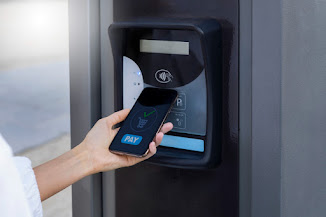Drone Solar Panel Inspection: Revolutionizing the Future of Solar Energy Maintenance
In recent years, the use of drones for various industrial applications has grown exponentially. One of the most promising areas for drone technology is in the inspection and maintenance of solar energy systems. As solar energy continues to become a significant part of the global energy mix, ensuring that solar panels are functioning optimally is critical. Traditionally, solar panel inspections involved manual labor, requiring technicians to climb onto rooftops or scale solar farms. This process was not only time-consuming but also posed safety risks. However, with the rise of drone solar panel inspections, the landscape of solar energy maintenance is being transformed, bringing efficiency, cost savings, and enhanced safety to the industry.
The Advantages of Drone Solar Panel Inspections
-
Increased Efficiency and Speed
Drones equipped with high-resolution cameras and thermal imaging technology can quickly scan large solar panel arrays, capturing thousands of images in a short period. This allows for faster assessments of the solar panels’ condition without the need for technicians to physically inspect each panel. The data captured by drones is processed using advanced software to detect potential issues such as hot spots, cracks, or dirt accumulation, which could reduce the panels’ efficiency. The speed and precision of drone inspections significantly reduce the time required for an inspection, allowing for quicker decision-making and maintenance. -
Cost Savings
Drone inspections are not only faster but also more cost-effective than traditional methods. With drones, the need for scaffolding, cranes, or other heavy equipment is minimized, and the need for human labor is reduced. Additionally, drone operators can perform inspections remotely, which lowers the risk of accidents and decreases the need for on-site personnel. Overall, these factors lead to significant cost savings for solar companies, making drone inspections an attractive option. -
Improved Safety
Traditional solar panel inspections often require technicians to work at heights, sometimes in challenging weather conditions. This presents significant safety risks. Drones eliminate the need for workers to climb onto rooftops or venture into large solar farms. The drones can access difficult-to-reach areas, such as panels located on steep rooftops or remote solar farms, without putting personnel in harm’s way. This not only improves safety but also reduces the chances of accidents and injuries. -
Enhanced Accuracy and Data Quality
Drones are equipped with sensors that can capture highly detailed imagery and thermal data, allowing for more accurate inspections. Thermal imaging, in particular, is an invaluable tool in identifying “hot spots” on solar panels, which are often indicative of malfunctions such as electrical faults or areas of the panel that aren’t performing at optimal capacity. The high-resolution data collected can be analyzed using specialized software to create comprehensive reports, ensuring that no issues go unnoticed. -
Real-time Monitoring and Predictive Maintenance
With the integration of drone inspections and artificial intelligence, solar energy providers can shift from reactive to predictive maintenance. Drones can regularly monitor solar panels, and AI-powered algorithms can predict potential issues before they escalate. This proactive approach minimizes downtime and extends the lifespan of the solar panels, ensuring that solar farms and rooftop systems operate at peak efficiency.
The Future of Drone Solar Panel Inspections
As drone technology continues to evolve, its capabilities will only improve. In the future, drones may be able to conduct even more advanced inspections with higher precision, while artificial intelligence and machine learning algorithms will provide more in-depth insights into the condition of solar panels. The integration of drones into solar panel maintenance and inspection is just the beginning of a new era in renewable energy, where automation, efficiency, and safety are at the forefront of innovation.
In conclusion, drone solar panel inspections are a game-changer for the solar energy industry. They offer increased speed, efficiency, cost savings, and safety, while also providing detailed and accurate data for better decision-making. As more solar energy providers adopt this technology, drone inspections are set to become the standard practice for maintaining solar panels, helping to optimize performance and ensure the long-term sustainability of solar power systems worldwide.




Comments
Post a Comment